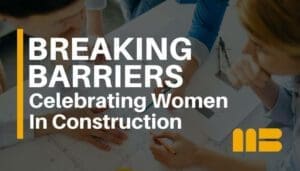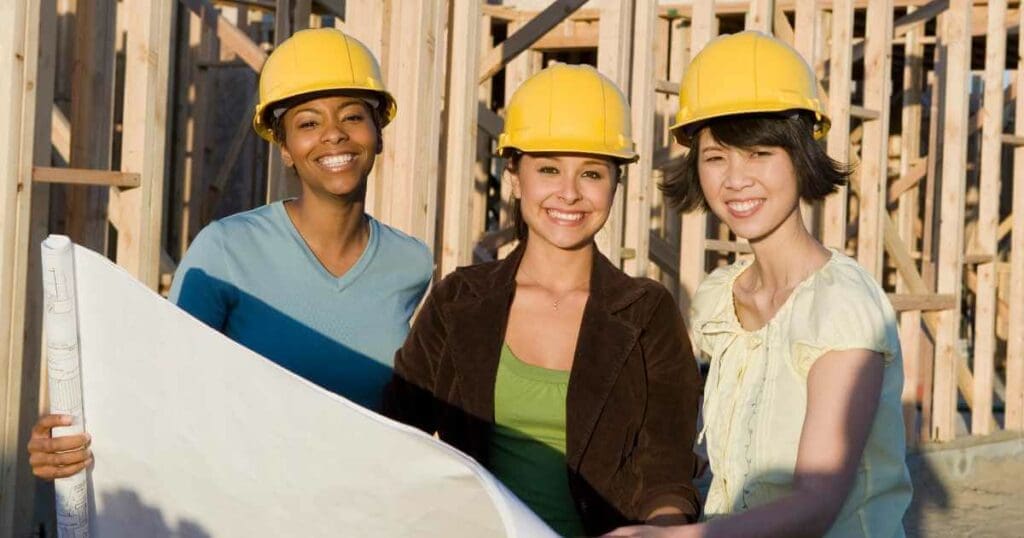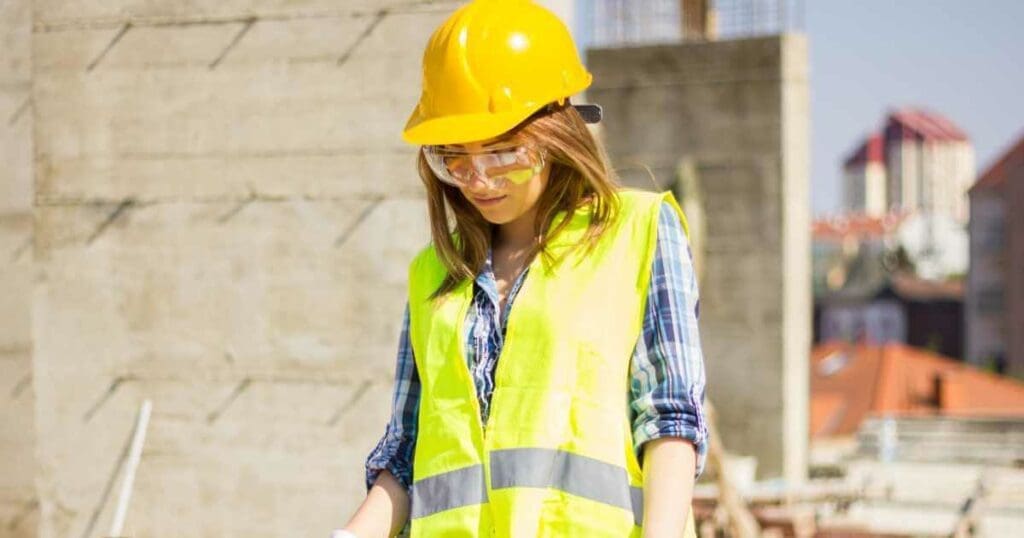Women in Construction Week is a yearly event that celebrates the significant contributions of women in the construction sector. In the United States, the construction industry has historically been dominated by men; however, in recent years, the number of women in construction has steadily increased. Women are now taking on more significant roles as construction workers, project managers, construction managers, sales managers, division presidents, executives, and thought leaders in the building industry.
The National Association of Women in Construction (NAWIC) has been instrumental in supporting the professional development of women in the construction field. They provide members with education and training in technical skills, project management, and occupational safety. NAWIC also offers a support network for female workers in the construction sector and related industries. The organization has helped to create career opportunities for women and has been a driving force in encouraging younger generations of women to pursue careers in the construction field.
The success of women in the building industry has been seen in the increasing number of females who have earned degrees and certifications in construction-related fields. More women are becoming project managers, construction managers, and tradeswomen, breaking the stereotype that construction is male-dominated. Many young women are also entering the industry, taking advantage of the opportunities available and pursuing career paths that were once considered unconventional.
The construction industry has recognized the importance of promoting women and has taken steps to create a more welcoming environment. Companies are hosting events like Tradeswomen Tuesdays, offering continental breakfast sponsors, lunch sponsors, and other networking opportunities to connect women in the field. For example, during Women in Construction Week, the city of Fort Worth sponsors a live event to commemorate and empower women in the area.
The industry has also recognized the need to create a culture of innovation and collaboration, and women are playing an essential role in this. Women bring a fresh perspective to building projects and can collaborate effectively with their male counterparts. By creating a diverse and inclusive workforce, the industry is better equipped to handle the unique challenges of construction projects and is better positioned for growth and success.
At MatchBuilt, we are proud to support Women in Construction Week and the cause of promoting women in the industry. Promoting diversity and inclusion, encouraging career growth and development, and fostering a culture of innovation and collaboration are critical to creating a more prosperous and sustainable construction industry. We will continue to support women in the building industry and work towards creating a more inclusive and diverse workplace.
There are three key reasons why we are so supportive of this important cause:
- Promoting diversity and inclusion: MatchBuilt recognizes the value of diversity and inclusion in the workplace and believes that promoting women in the construction industry is an important step towards creating a more inclusive and diverse workplace.
- Encouraging career growth and development: MatchBuilt is committed to helping women in the building industry build successful careers. We believe that by promoting women in the construction industry, we are helping to create opportunities for career growth and development.
- Fostering a culture of innovation and collaboration: Women bring a unique perspective and set of skills to the construction industry, and their presence helps to foster a culture of innovation and collaboration. By promoting women in the industry, MatchBuilt is helping to drive innovation and promote collaboration in the construction industry.
Overview of Women in Construction Week
Women in Construction Week, an annual event celebrated during the first week of March, is a time to acknowledge the valuable contributions of professional women in building jobs, a traditionally male-dominated industry. The National Association of Women in Construction (NAWIC) created the event to promote diversity and inclusion and raise awareness about the various career opportunities available to women in construction.
The organization also offers a national charter for women-owned businesses, leadership training, best practices, member education, and a conference to encourage community involvement and career growth. Despite progress, female leaders still only represent a small percentage of the workforce in regions worldwide. However, NAWIC highlights the importance of creating new jobs and cultivating female talent, with many women in construction now working as project managers or staff executives and some holding advanced degrees, such as master’s degrees. Women in construction have also made strides in countries like South Africa, where they are increasingly recognized for their public service and leadership.
Challenges Faced by Women in the Construction Industry
Women in the construction industry often face significant challenges, including gender-based discrimination and lack of mentorship and sponsorship.
To address these challenges, the National Association of Women in Construction (NAWIC) offers various resources and support to women in the industry. These resources include networking opportunities, mentorship programs, and educational resources to help women build their careers and overcome the barriers they face. NAWIC also advocates for policies and initiatives that promote diversity and inclusion in the building industry and raises awareness about women’s important contributions to the field.
- Gender-based discrimination – According to a study by the National Women’s Law Center, women in the construction industry experience high rates of gender-based discrimination, including sexual harassment, unequal pay, and limited opportunities for advancement. The study found that women in the construction industry are paid just 92 cents for every dollar earned by their male counterparts, and they are often subjected to discriminatory behavior, such as being passed over for promotions or being excluded from company events.
- Lack of mentorship and sponsorship – Women in the construction industry often lack mentors and sponsors who can provide guidance and support in their careers. According to an article by Forbes, women in construction report feeling isolated and unsupported, which can limit their ability to develop their skills and advance in their careers.
Success Stories and Role Models for Women in Construction
- Peggy Greenwell – Peggy Greenwell is a former president of the National Association of Women in Construction (NAWIC) and a trailblazer in the construction industry. Throughout her career, Greenwell has strongly advocated diversity and inclusion in the field, working to break down barriers and create opportunities for women in the building industry. She has also served as a mentor to many young women in the industry, helping them to build successful careers of their own.
- Katie Mehnert – Katie Mehnert is the CEO of Pink Petro, a global energy network that empowers women in the energy industry. She is a champion for women in construction and has worked to create opportunities for women in the industry through her work with Pink Petro. Mehnert is a role model for women in the field, and her work has inspired many to pursue careers in construction.
- Jodi Gilmour – Jodi Gilmour is the founder and CEO of Women in Construction and Engineering, a not-for-profit organization that aims to promote and support women in the building industry and engineering industries. Throughout her career, Gilmour has been a strong advocate for women in the industry, working to raise awareness about the important contributions of women in the field and to break down barriers to their success.
These are just a few examples of the many successful women in the building industry. Through their work, these women inspire a new generation of women to pursue careers in the field and break down barriers to their success. The National Association of Women in Construction (NAWIC) has played a critical role in supporting and promoting the success of women in the industry and continues to be a vital resource for women in the field.


